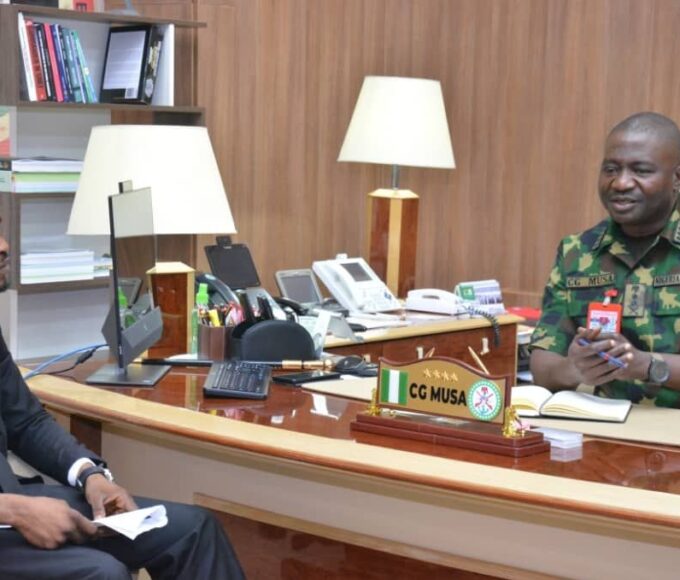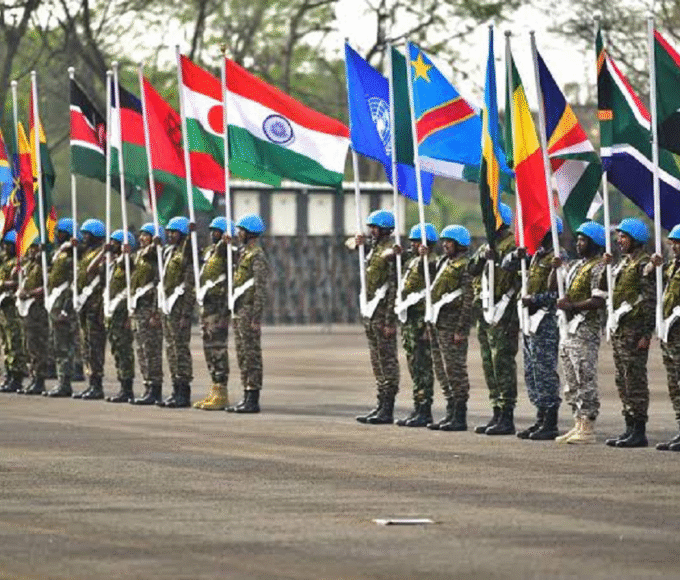General Osama Askar: The Quiet Strategist Behind Egypt’s Military Dominance

In the high-stakes theatre of African military power, Egypt stands unrivalled. Ranked 15th globally on the 2024 Global Firepower Index with a Power Index score of 0.2283, Egypt commands the continent’s most formidable military. At the heart of this unmatched might is General Osama Ahmed Rushdy Abdullah Askar — a disciplined tactician, seasoned field commander, and, until mid-2024, the Chief of Staff of the Egyptian Armed Forces.
Now serving as the President’s Adviser on Military Affairs, Askar’s imprint on Egypt’s military trajectory remains profound. From overhauling defence structures to fostering African military cooperation, he shaped a modern security doctrine that continues to influence the region.
The Rise of a Military Strategist
Born in 1957 in the Daqahlia Governorate, Askar’s military career began at the Egyptian Military Academy, which he joined in the late 1970s. A career infantry officer, his calm disposition conceals the sharp operational instincts that propelled him through the ranks.
He gained national prominence as Commander of the Third Field Army, a strategic command overseeing Egypt’s eastern front, including the critical Suez and Red Sea axis. Under his leadership, the unit became a benchmark for operational discipline and successful counter-terrorism operations in the volatile Sinai Peninsula.
Commanding the Egyptian Armed Forces
In October 2021, President Abdel Fattah al-Sisi appointed Askar as Chief of Staff. Taking over from Lieutenant General Mohamed Farid Hegazy, he inherited a well-established but conventional force that needed modernisation to confront 21st-century threats.
Askar championed reforms in military doctrine, prioritising mobility, technological superiority, and multi-theatre readiness. He significantly expanded Egypt’s participation in multinational exercises and regional coalitions, ensuring that the military was not only battle-ready but strategically aligned with global trends.
Building a Billion-Dollar Arsenal
Under his leadership, Egypt’s defence budget grew to over $5.2 billion. Backed by strong international alliances and continuous U.S. military assistance, Askar oversaw the acquisition of cutting-edge systems: French Rafale jets, U.S. F-16s, German Type 209 submarines, and M1 Abrams tanks.
With 440,000 active personnel and 480,000 reservists, Egypt maintains one of the world’s largest military forces. But Askar understood that raw numbers were insufficient. He focused on enhancing force agility, inter-service coordination, and technological adaptability—factors crucial in modern warfare.
Championing African Defence Collaboration
While his primary mandate was national security, Askar strongly advocated for regional military integration. He believed that Africa’s complex security challenges required collaborative solutions, stressing joint exercises, shared intelligence, and pan-African defence platforms.
At regional forums and summits, he consistently called for deeper African defence diplomacy. Egypt, under his guidance, hosted multinational drills like Bright Star and actively engaged with African Union-led initiatives, positioning itself as a cornerstone of continental security.
Transition to Strategic Advisory Role
On 3 July 2024, President Sisi announced a major military reshuffle. Askar handed over the Chief of Staff role to Lieutenant General Ahmed Fathy Khalifa but remained central to Egypt’s security affairs through his appointment as the President’s Adviser on Military Affairs.
His move to a strategic role underscores the enduring trust in his expertise. As one senior analyst observed: “Askar hasn’t stepped down—he’s stepped up to a higher vantage point from which to influence Egypt’s long-term defence strategy.”
Legacy of a Modern Commander
General Osama Askar’s legacy is not merely one of weapons and war drills. He transformed Egypt’s military philosophy by blending conventional command values with innovations in cyber warfare, drone integration, and joint-force interoperability.
His leadership style—quiet yet effective—earned widespread respect. While others courted attention, Askar allowed Egypt’s rising military stature to speak on his behalf. His commitment to discipline, excellence, and regional stability remains a benchmark for African military leadership.
As Egypt faces mounting regional tensions—from Libya’s instability to maritime threats in the Red Sea—the military model engineered under Askar will be tested. But with him still advising at the highest level, Egypt’s defence posture remains strong and adaptive.
In a continent witnessing rapid military evolution, General Osama Askar’s era as Chief of Staff will be remembered as a transformative period in Egypt’s defence history. He was not just a commander; he was an architect of modern military strategy, an advocate for African unity, and a sentinel of sovereign strength.
His own words capture the essence of his enduring philosophy:
“A strong army is not only measured by the weapons it holds, but by the unity of its purpose, the clarity of its vision, and the discipline of its command.”
In Egypt’s current resilience and Africa’s growing military cooperation, General Askar’s legacy continues to echo — quietly but powerfully.
Recent Posts
Categories
- Air & Aerospace17
- Border Security15
- Civil Security6
- Civil Wars4
- Crisis5
- Cyber Security8
- Defense24
- Diplomacy19
- Entrepreneurship1
- Events5
- Global Security Watch6
- Industry8
- Land & Army9
- Leadership & Training5
- Military Aviation7
- Military History27
- Military Speeches1
- More1
- Naval & Maritime9
- Policies1
- Resources2
- Security12
- Special Forces2
- Systems And Technology9
- Tech6
- Uncategorized6
- UNSC1
- Veterans7
- Women in Defence9
Related Articles
Why General C.G. Musa Is the Right Defence Minister for Nigeria—Right Now
President Bola Tinubu’s nomination of General Christopher Gwabin Musa (rtd.) as Minister...
ByKing Richard Igimoh, Group Editor ALODecember 2, 2025DIPLOMACY, PEACE & CIVIL SECURITY – CROSS-BORDER PEACE PACTS IN EAST AFRICA: SUCCESS OR FAILURE?
From the windswept Karamoja hills to the fishing villages of Lake Victoria,...
ByKing Richard Igimoh, Group Editor ALONovember 24, 2025INDIA’S GROWING MILITARY PARTNERSHIPS WITH AFRICA
India’s engagement with Africa is undergoing a quiet but powerful transformation. What...
ByKing Richard Igimoh, Group Editor ALOOctober 14, 2025ECOWAS MILITARY INTERVENTION IN NIGER: A TURNING POINT?
The coup d’état in Niger on July 26, 2023, marked a seismic...
ByKing Richard Igimoh, Group Editor ALOOctober 7, 2025













